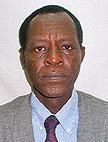Last month the Rwanda Academy of Language and Culture, which has been in the statues since 1981, was put in place with the main objective of preservation and development of Kinyarwanda (national) language and culture.


Last month the Rwanda Academy of Language and Culture, which has been in the statues since 1981, was put in place with the main objective of preservation and development of Kinyarwanda (national) language and culture. The objectives of the academy are understandably vital if we are to avoid the erosion of our culture and the dangers of diluting our language as a result of the introduction of other languages. But achieving them is complicated. The complexity is located in the politics of language that has occupied thinkers over time. One scholar said that language is the singular most important component of a people’s culture, since culture itself is defined as the "ideas, customs and art of a particular society or civilization at a particular period in time”. If you want to destroy a people’s self-esteem, all you need to do is to destroy their language and thereafter, put your own language into their mouths, and then let them grow up as your caricatures.That is what colonialism did to subject societies all over the world although one can not say it was always deliberate. But whether deliberate or incidental the impact was negative and the academy should among other things endeavor to rehabilitate the status of our national heritage- Kinyarwanda and Gacondo culture, however, without losing sight of the importance of English and other languages of international communication.The fact that the Ministry of Culture, and the newly established Rwanda Academy of language and Culture have pledged to direct resources and energy in the promotion of our language and culture, is a major step in the right direction. The recent consultative meeting held in Kigali to solicit views from citizens, provided raw material which will help to refine the objectives of the academy. Participants affirmed the need to make their language more central in the lives of Rwandans, to guard against its misuse of the language and not to regard it as subordinate to other official languages. Hopefully outrageous mistakes like Kaminuza Nkuru y’Urwanda which is not a proper translation of the National University of Rwanda will be corrected and words like imibonano mpuza bitsina that are crude could be replaced by an appropriate euphemism to signify sexual intercourse. Some told me that it could be a direct translation from a European language.Kinyarwanda language and Rwanda core values will be preserved and nurtured by Rwandans themselves and the education systems has a great role to play. In that vein, the Academy Executive Secretary, Dr James Vuningoma rejected a suggestion by one participant to identify Institutions abroad where students can pursue master’s degrees in Kinyarwanda, stressing the need to develop programmes in our local universities where foreigners could come to study Kinyarwanda language and culture. Kigali Institute of Education (KIE), for example, has a center for Gender, Culture and Development that, so far, offers master of social science in Gender and development. An Australian Professor who established the center mobilized lecturers from Rwanda and outside to run a successful programme, why not Kinyarwanda? The few Lecturers of Kinyarwanda and Linguistics at KIE can create a focus group to teach and research Kinyarwanda language and culture, generate teaching/ research resources, and establish international linkages.With universal basic education most Rwandan youth, are in school making the school system the most powerful vehicles. Kenyan renowned writer and thinker, Professor Ngugi was Thiongo in his book Decolonizing the Mind says "a sound educational policy is the one which enables students to study the culture and environment of their society first, then in relation to the culture and environment of other societies”. Ngugi’s statement reinforces the point I made in this column last year when I wrote about the significance of teaching Literature in our schools stressing the fact better articulated by Ngugis statement that ” Literature is a powerful instrument in evolving the cultural ethos”. Teaching literature starting from Rwanda Literature, then African literature followed by world literature will enhancing the appreciation of culture in a wider perspectiveI wish to make a few recommendations. Teaching of Literature should start in lower primary schools with emphasis on Rwanda Literature written in Kinyarwanda or other languages used in Rwanda, Literature should be examined at "o” level.Research in Rwanda Literature should be done with a view to appreciate and promote oral Literature and translate them into foreign languages for it is in our folklore that our culture has been recorded. There is need for more cultural activities including, music and drama festivals. Such artistic creations engage students, their teachers and the community creatively and culturally and might lead suitable publications.


